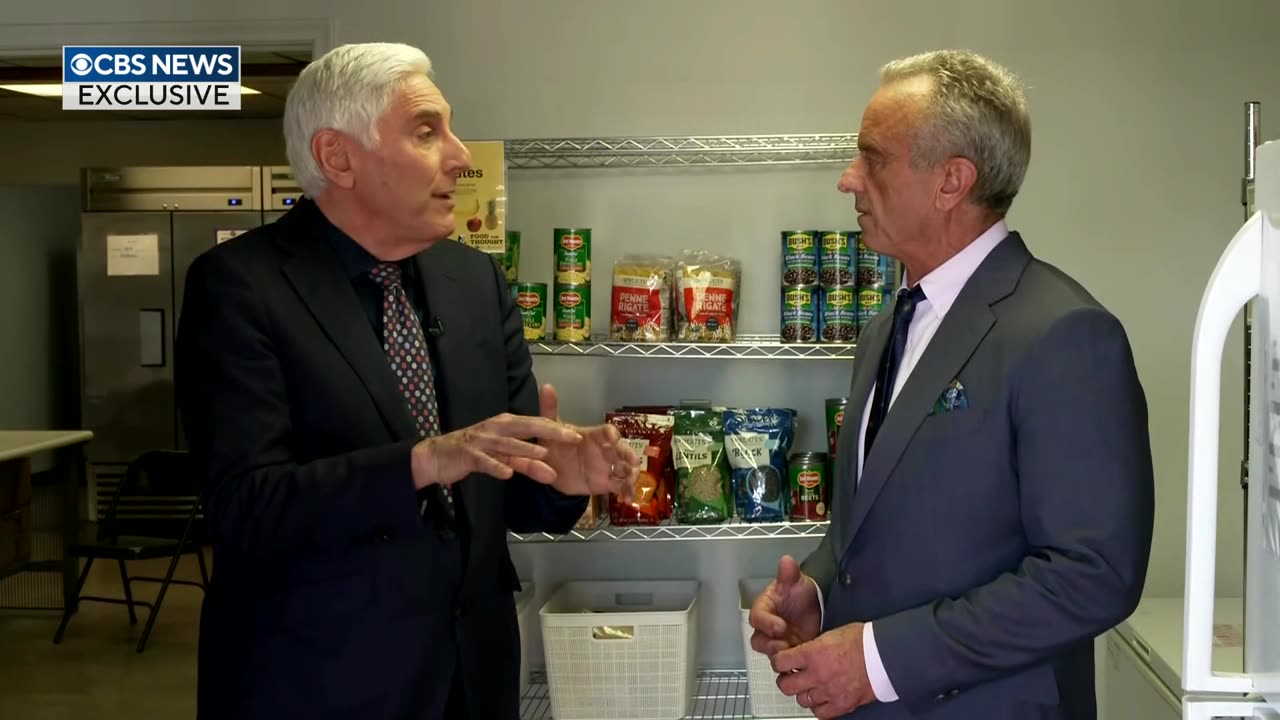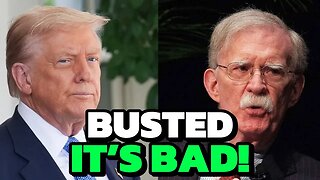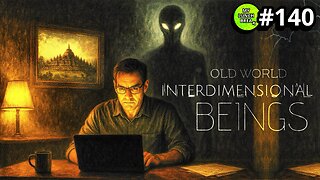Premium Only Content

RFK Jr. Explains the Challenge of “Getting Rid of the Taboos” in the Food Industry
In a rare, web-exclusive interview with CBS News chief medical correspondent Dr. Jon LaPook, Health and Human Services Secretary Robert F. Kennedy Jr. opened up about the uphill battle of overhauling deep-rooted practices in the food industry. During the conversation, Kennedy not only addressed the persistent taboos that have long governed food production and safety but also outlined his plan to improve the Indian Health Service—an effort aimed at bridging longstanding gaps in healthcare for Native American communities.
Challenging the Status Quo in Food Production
Kennedy explained that one of the most significant obstacles to food safety reform isn’t merely the presence of harmful additives but also the ingrained “taboos” that prevent meaningful change. According to him, decades-old practices and unchallenged assumptions have allowed the industry to sidestep rigorous scrutiny.
“We must not only remove harmful substances but also dismantle the traditions and taboos that have been accepted for far too long. True transparency requires that everyone—from producers to regulators and consumers—opens up to new possibilities.”
– CBS News Exclusive
He emphasized that these taboos extend beyond the ingredients themselves; they influence production methods, regulatory leniency, and even consumer perceptions. Kennedy stressed that meaningful change requires a fundamental shift in how the industry operates, moving away from guarded practices toward a model of accountability and safety.
A New Focus on the Indian Health Service
In addition to his critique of the food industry, RFK Jr. highlighted his administration’s commitment to bolstering the Indian Health Service. Kennedy pointed to chronic underfunding and systemic challenges as major hindrances affecting Native American communities.
“Improving the Indian Health Service isn’t just an administrative task—it’s a moral imperative. For too long, these communities have been marginalized in our healthcare system. Our goal is to ensure that Native Americans receive the equitable treatment they deserve by significantly overhauling and reinvesting in these services.”
– CBS News Exclusive
He argued that better healthcare for these communities would not only address immediate health disparities but also serve as a model for more inclusive public health policies nationwide.
Toward a More Transparent and Safe Future
Kennedy’s candid remarks reflect a broader vision for a future where the food industry and public health systems are held to much higher standards of safety and accountability. His strategy involves:
Breaking Down Barriers: The elimination of longstanding taboos that inhibit the reformation of production processes and regulatory frameworks.
Regulatory Reform: Advocating for a revamp of standards such as GRAS (Generally Recognized As Safe), which currently allow questionable ingredients to bypass stringent safety evaluations.
Collaborative Change: Calling on industry leaders, policymakers, and consumer advocates to work together towards an overhaul that prioritizes public health over legacy practices.
Kennedy’s remarks suggest that this ambitious change will not come overnight. It is, instead, a call for a sustained, cooperative effort to transition the industry towards a model that values transparency, scientific scrutiny, and consumer safety above all.
Conclusion
RFK Jr.’s exclusive interview with CBS News has laid bare the considerable challenges facing the food industry today—from outdated practices and defensive traditions to an uneven regulatory landscape. At the same time, his administration’s focus on strengthening the Indian Health Service underscores a broader commitment to rectifying systemic inequities in public health. While the road ahead may be difficult, Kennedy’s vision for a more open and accountable industry represents a bold step toward ensuring a safer, healthier future for all Americans.
-
 LIVE
LIVE
Tundra Tactical
3 hours ago🎯💥 The World’s Okayest Gun Show 🔫😂 | LIVE Tonight on Rumble!
295 watching -
 LIVE
LIVE
Mally_Mouse
22 hours ago🌶️ 🥵Spicy BITE Saturday!! 🥵🌶️- Let's Play: Tower Unite!
412 watching -
 58:59
58:59
MattMorseTV
3 hours ago $0.76 earned🔴Trump just BROKE Newsom.🔴
32.4K31 -
 18:14
18:14
Her Patriot Voice
3 hours agoWho Is WORSE for NYC: Trump Girl or Socialist?
10K21 -
 LIVE
LIVE
SavageJayGatsby
3 hours agoSpicy Saturday with Mally! | Road to 100 | $300 Weekly Goal for Spicy Bites!
1,199 watching -
 LIVE
LIVE
FomoTV
5 hours ago🚨 Swamp Theater: FBI Raids Bolton 🕵 Still NO Epstein Files, Trump's Troops & the Red Heifer Hoax 🐂 | Fomocast 08.23.25
82 watching -
 6:04:40
6:04:40
Akademiks
8 hours agoRoc Nation & Meg Thee Stallion did a 7 HOUR Deposition with me. Drake Secret Kid Finally Revealed.
35.5K1 -
 24:19
24:19
Stephen Gardner
4 hours ago🚨BREAKING: FBI Raid of John Bolton’s House Reveals THIS!
39.4K103 -
 8:31
8:31
MattMorseTV
6 hours ago $0.93 earnedTexas just did the IMPOSSIBLE.
35.2K57 -
 24:39
24:39
MYLUNCHBREAK CHANNEL PAGE
1 day agoInterdimensional Beings at Borobudur
46.4K27